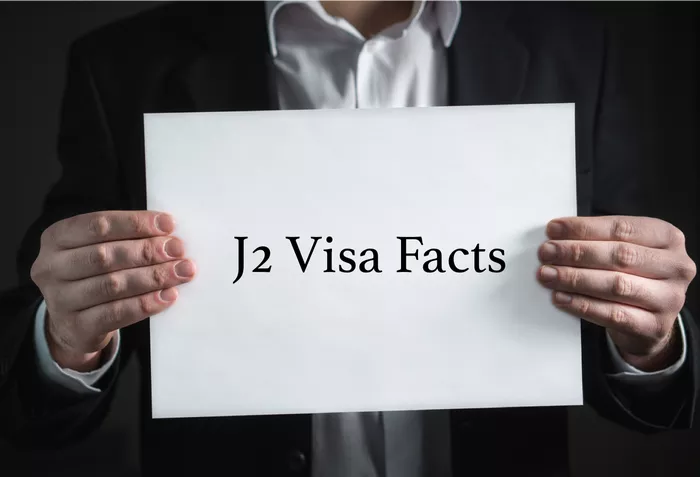The J-2 visa is a crucial component of the United States’ exchange visitor program, allowing spouses and dependents of J-1 visa holders to accompany them to the U.S. and participate in cultural exchange activities. This visa category plays a significant role in facilitating international exchange and fostering cultural understanding. In this comprehensive guide, we delve into the intricacies of the J-2 visa, exploring its eligibility criteria, application process, rights, and limitations.
What is the J-2 Visa?
The J-2 visa is a non-immigrant visa category specifically designed for the spouses and unmarried children (under the age of 21) of J-1 visa holders. The J-1 visa is issued to individuals participating in exchange visitor programs sponsored by the U.S. Department of State for the purpose of cultural exchange, education, or training.
Eligibility Criteria for J-2 Visa
To qualify for a J-2 visa, individuals must meet certain eligibility criteria:
1. Relationship to the J-1 Visa Holder: The primary requirement for obtaining a J-2 visa is to be the spouse or unmarried child of a J-1 visa holder. This relationship must be legally recognized in the home country of the applicant.
2. Proof of Dependency: Dependents must provide evidence of their dependency on the J-1 visa holder, typically through documentation such as marriage certificates for spouses or birth certificates for children.
3. Validity of J-1 Visa: The J-2 visa is dependent on the status of the accompanying J-1 visa holder. Therefore, the J-1 visa must be valid for the duration of the intended stay in the U.S.
4. Ability to Support Themselves: While J-2 visa holders are allowed to study or work in the U.S., they must demonstrate that they have sufficient funds to support themselves during their stay, as they are not eligible for federal financial aid.
Application Process for J-2 Visa
The application process for a J-2 visa involves several steps:
1. DS-2019 Form: The J-1 visa holder must obtain a Form DS-2019 (Certificate of Eligibility for Exchange Visitor Status) from their program sponsor, which includes information about the accompanying dependents.
2. DS-160 Form: The J-2 visa applicant must complete the online DS-160 form, providing personal and background information.
3. Visa Interview: After completing the DS-160 form, the applicant must schedule and attend a visa interview at the nearest U.S. embassy or consulate. During the interview, they will be required to present supporting documents and answer questions about their intended stay in the U.S.
4. Biometric Data Collection: Depending on the embassy or consulate, applicants may be required to provide biometric data, including fingerprints and a photograph, as part of the application process.
5. Visa Issuance: If the visa application is approved, the applicant’s passport will be stamped with the J-2 visa, allowing them to accompany the J-1 visa holder to the U.S.
Rights and Limitations of J-2 Visa Holders
J-2 visa holders enjoy certain rights and privileges during their stay in the U.S., but they are also subject to certain limitations:
1. Study: J-2 visa holders are permitted to enroll in academic programs or pursue educational opportunities in the U.S. They may attend public or private schools, colleges, or universities on a full-time or part-time basis.
2. Employment: J-2 visa holders are eligible to apply for work authorization from the U.S. Citizenship and Immigration Services (USCIS). Once approved, they may seek employment in the U.S., either part-time or full-time, without restrictions on the type of work or employer.
3. Travel: J-2 visa holders are free to travel in and out of the U.S. during the validity period of their visa, provided they have the necessary travel documents, including a valid passport and visa.
4. Duration of Stay: The duration of stay for J-2 visa holders is contingent upon the validity period of the accompanying J-1 visa. They are authorized to remain in the U.S. for the same duration as the J-1 visa holder, and their visa status is subject to renewal or extension.
5. Dependents’ Obligations: While J-2 visa holders have the freedom to study or work in the U.S., they are also obligated to maintain their dependent status and adhere to the terms of their visa. This includes maintaining valid health insurance coverage throughout their stay in the U.S.
Conclusion
The J-2 visa provides an invaluable opportunity for the spouses and dependents of J-1 visa holders to accompany them to the U.S. and participate in cultural exchange activities. By allowing family members to join the J-1 visa holder, the program promotes family unity and enhances the cultural exchange experience for all participants. Understanding the eligibility criteria, application process, and rights of J-2 visa holders is essential for those considering accompanying a J-1 visa holder to the U.S. Through this comprehensive guide, we hope to provide clarity and guidance to individuals seeking to navigate the intricacies of the J-2 visa program.


